Hey there! If you're navigating the sometimes stressful world of application deadlines, you're not alone. Many people find themselves in situations where they need a bit more time to put their best foot forward. In this article, we'll explore how to effectively request an extension and provide you with a handy template to make your application process smoother. So, stick around and let's dive into the details!

Reason for Extension Request
Unexpected personal circumstances, such as a medical emergency or family obligation, can hinder timely completion of application materials for programs like graduate school or scholarships. This can result in missed deadlines initially set for December 1st or January 15th, which are critical for institutions such as Ivy League universities or prestigious art schools. Providing documentation, such as a doctor's note or letter from a family member, can substantiate the request for an extension. A feedback loop with admissions offices, often responsive via email or phone, can clarify the potential for a new deadline, fostering understanding for your unique situation.
Deadline Details and Length of Extension
Application deadlines for various programs, such as college admissions, grant proposals, or project submissions, often require strict adherence, typically set for dates like November 1st or March 15th. Requesting an extension, for instance, an additional two weeks, can be crucial when unforeseen circumstances arise, such as health issues or family emergencies. Clearly articulating the reasons for the request strengthens the case, allowing for consideration and possible leniency from the reviewing body, such as the admissions committee or funding organization. Proper documentation, like medical certificates or relevant correspondence, enhances credibility and urgency, potentially influencing the decision regarding the extension.
Supporting Documentation
Requesting an application deadline extension often requires substantial supporting documentation. Important elements may include a personal statement detailing circumstances leading to the request, such as unexpected emergencies, health issues, or academic challenges. Relevant medical records, financial statements, or documentation from academic advisors can validate claims. A formal letter to the designated office, such as the admissions committee or registrar, should clearly outline the original deadline date, reasons for the delay, and a proposed new deadline. Additionally, including contact information for individuals who can corroborate the situation adds credibility, ensuring that the application is evaluated fairly.
Contact Information
In academic environments, application deadlines play a critical role in student admissions processes. Specific dates, such as September 15, 2023, might determine eligibility for programs at renowned institutions like Harvard University or Stanford University. Contact information, comprising details such as email addresses (e.g., admissions@harvard.edu) and phone numbers (+1-617-495-1000), allows applicants to communicate directly with admissions offices. Proper formatting includes full names, addresses, and specific program names, fostering clarity and professionalism in correspondence. Institutional policies might outline procedures for requesting extensions, emphasizing the importance of concise and clear communication in formal requests.
Polite Closing and Gratitude
In academic settings, students often encounter important deadlines, such as assignment submissions or application processes, which may require extensions due to various circumstances. When requesting an application deadline extension, expressing gratitude and maintaining a polite tone is crucial for fostering goodwill. A well-crafted closing statement in such communications adds a professional touch, reinforcing respect for the recipient's time and understanding. A simple yet effective phrase could include appreciation for their consideration and an acknowledgment of their support in facilitating the request, promoting a positive rapport that may influence the decision-making process.
Letter Template For Application Deadline Extension Samples
Letter template of notification of need for application deadline extension
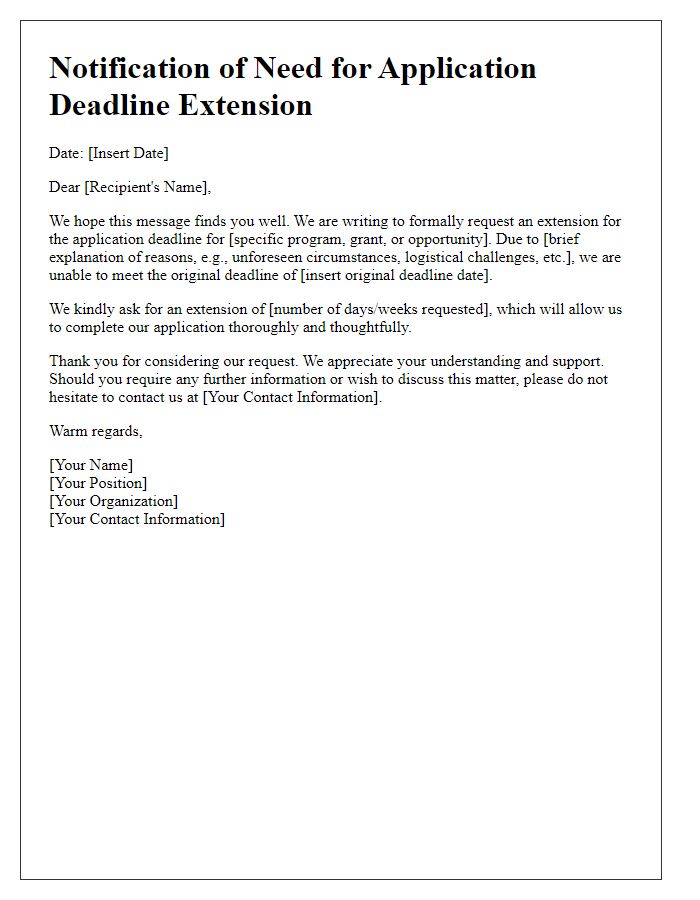

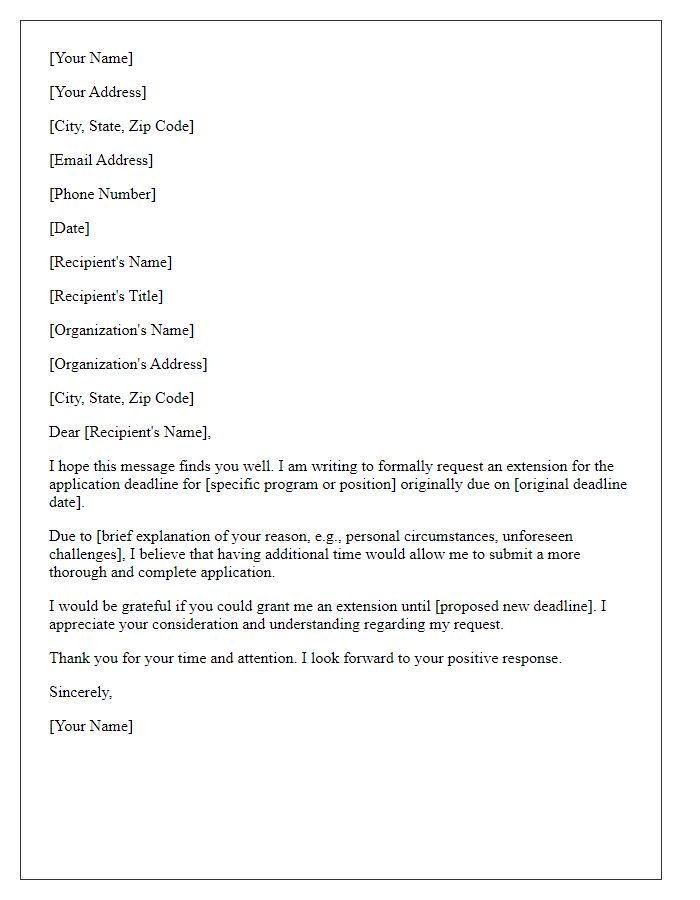
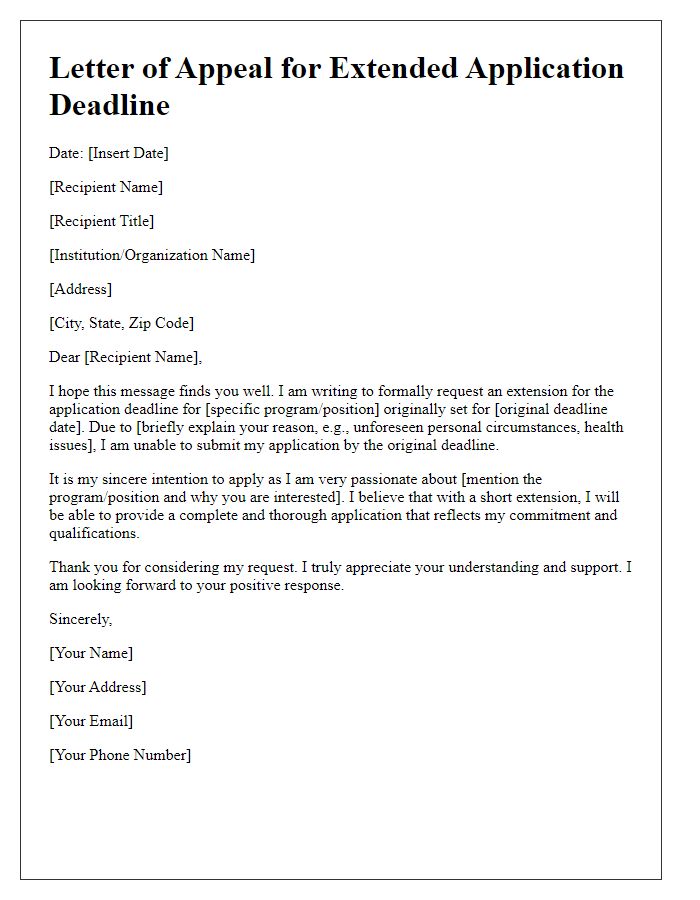
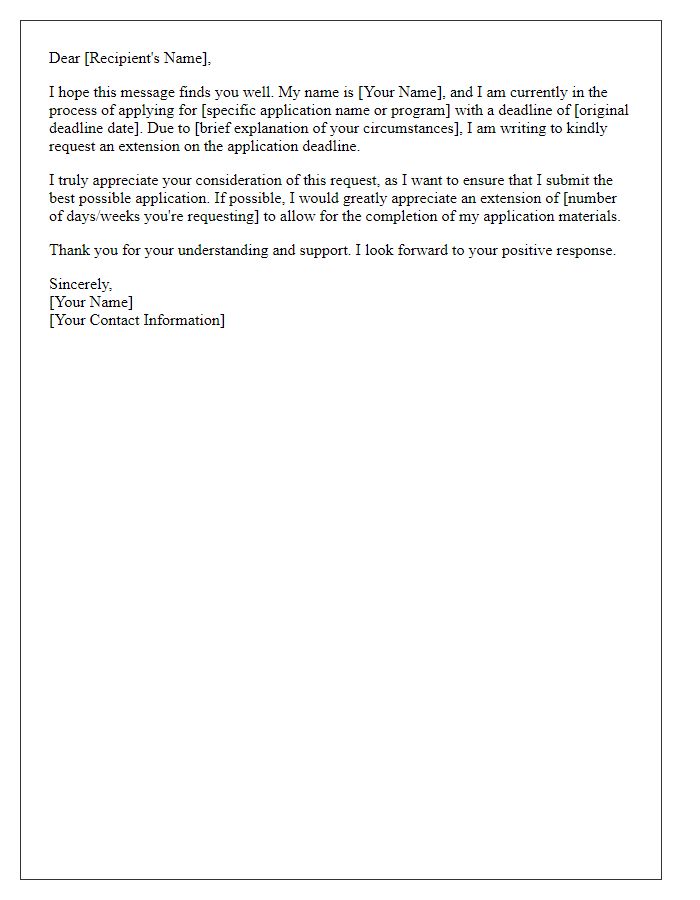
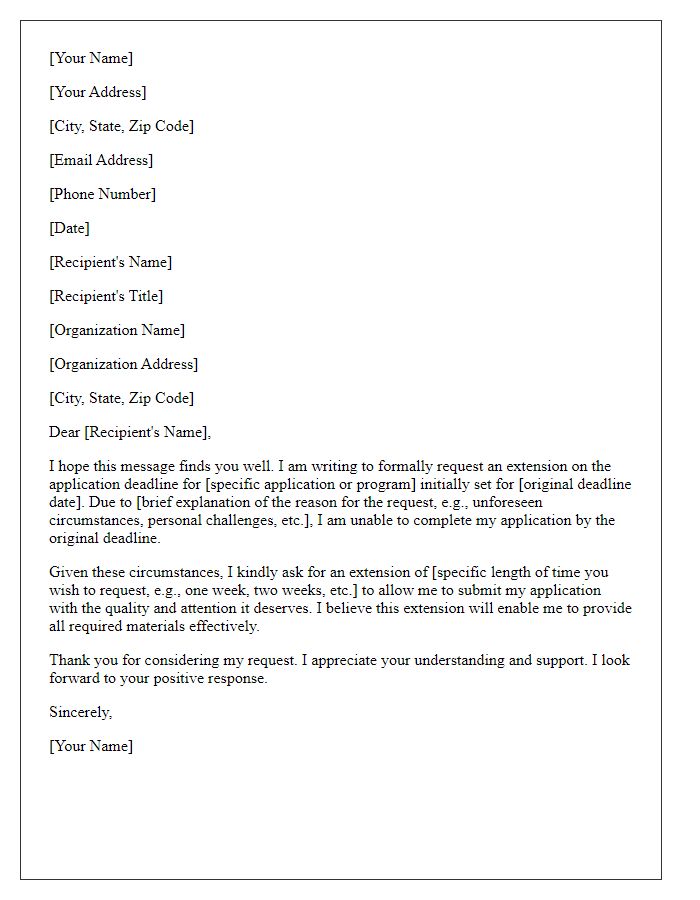
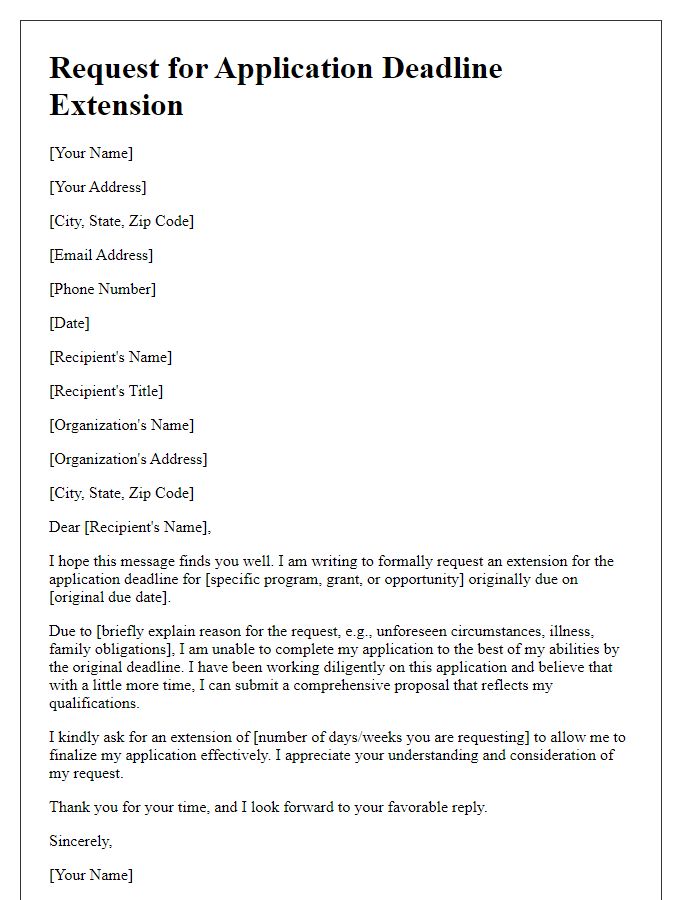
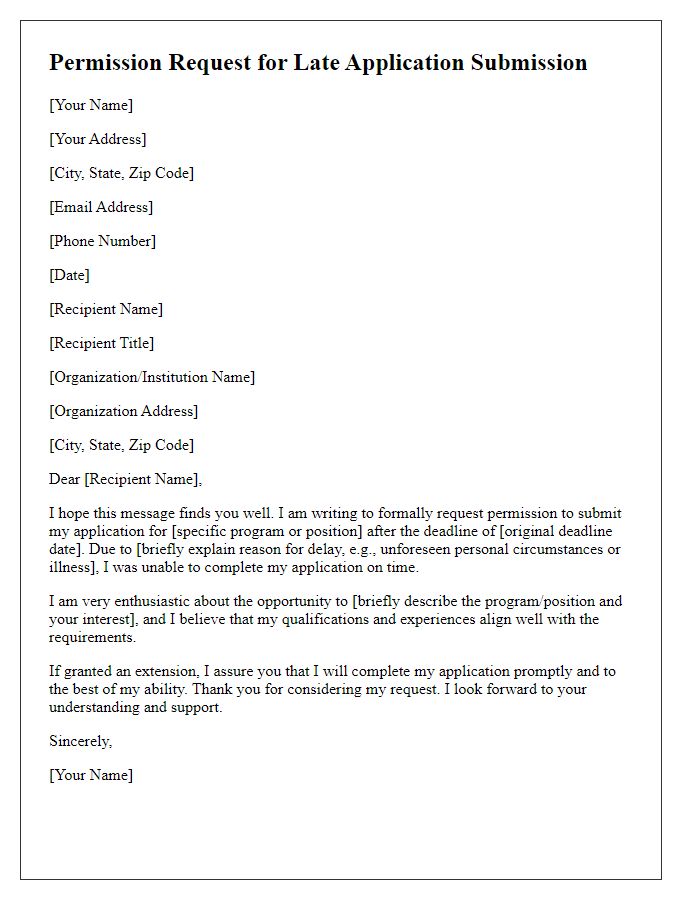
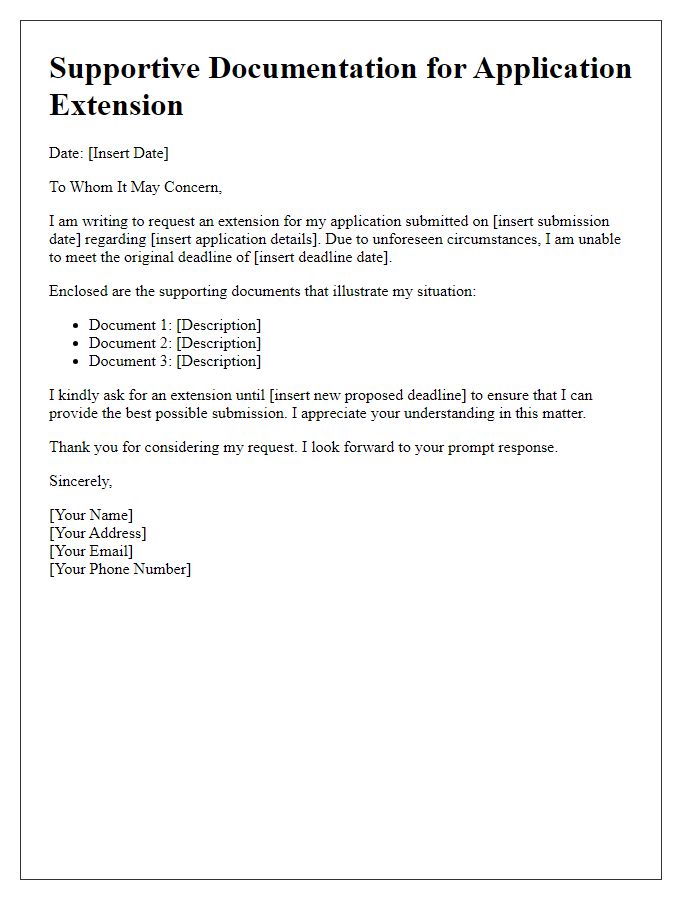
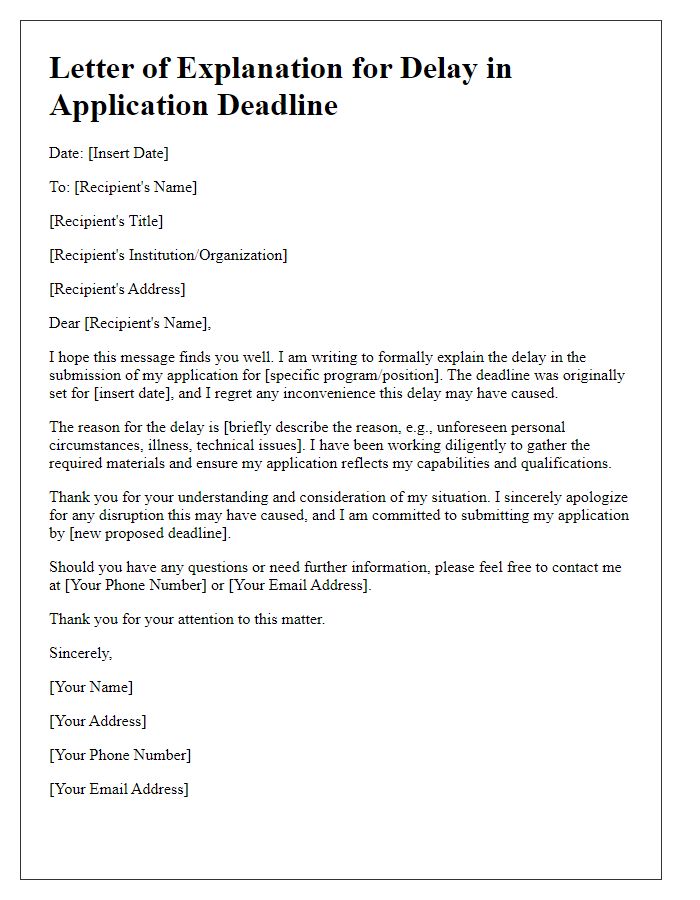
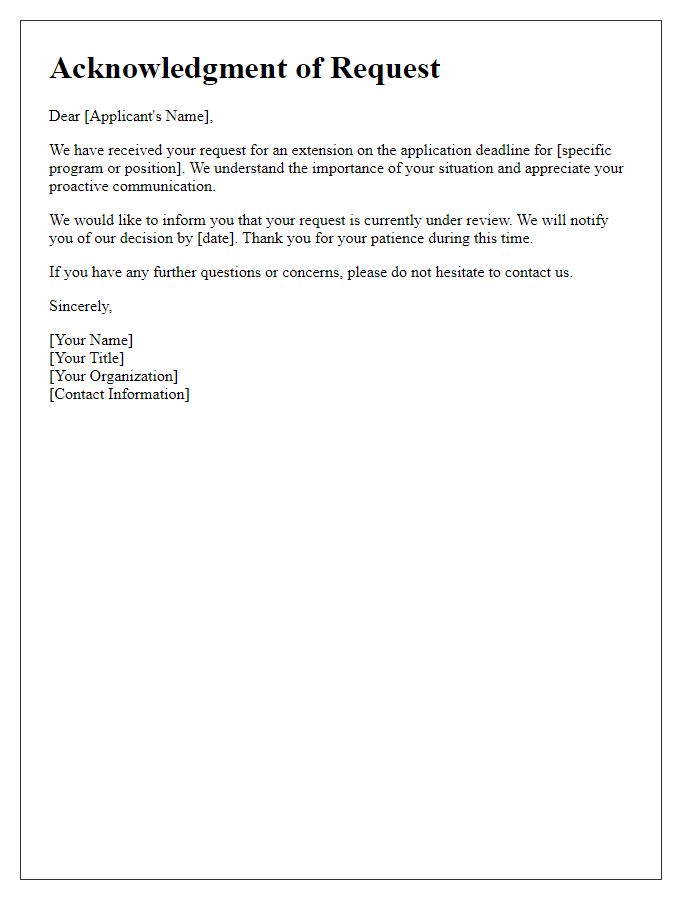


Comments